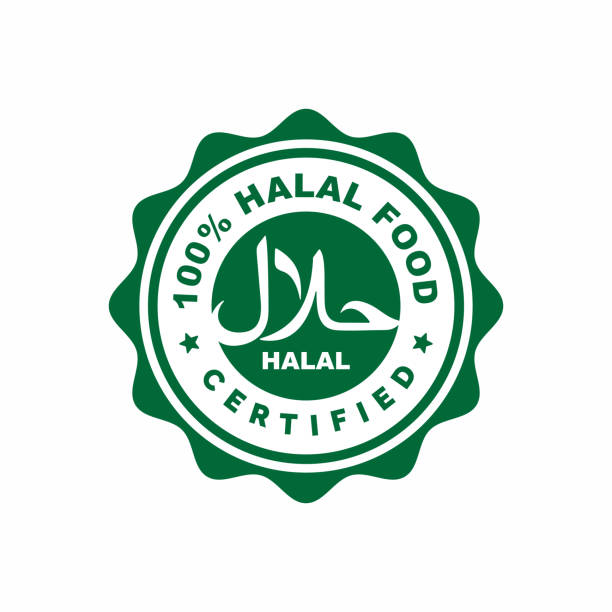Understanding what you eat is crucial, especially if you follow a halal diet. Halal monitoring services in the UK ensure that food products meet Islamic dietary laws. This guide will explain what Halal Monitoring Services in the UK are, their importance, and how they operate in the UK.
What Are Halal Monitoring Services?
Halal monitoring services are organisations that certify food products as halal. Halal means permissible in Arabic and refers to food that is allowed under Islamic law. These services inspect and certify that food products and processes comply with halal standards.
Importance of Halal Monitoring Services
Halal monitoring services play a vital role for several reasons:
- Consumer Trust: These services provide assurance to consumers that the food they consume meets halal standards.
- Compliance with Islamic Law: For Muslims, following halal dietary laws is a religious obligation. Monitoring services help ensure compliance.
- Food Safety and Quality: Halal certification often includes stringent checks on food safety and quality.
- Market Access: For businesses, having halal certification can open up new markets, both domestically and internationally.
How Halal Monitoring Services Operate
Halal monitoring services in the UK follow a thorough process to certify products. Here’s how they operate:
- Application and Documentation: The process begins with the food producer applying for halal certification. They must provide detailed documentation about their products and processes.
- Inspection and Auditing: The monitoring service conducts inspections of the production facilities. This includes checking the ingredients, processing methods, and cleanliness.
- Compliance Check: The service ensures that all ingredients used are halal. This means no pork or alcohol and that meat products come from animals slaughtered according to Islamic law.
- Certification: If the product meets all halal standards, the monitoring service issues a certification. This certificate is often displayed on the product packaging.
- Ongoing Monitoring: Halal certification is not a one-time process. Regular inspections and audits ensure continued compliance with halal standards.
Major Halal Monitoring Services in the UK
Several organisations provide halal certification in the UK. Here are a few of the most prominent ones:
- Halal Food Authority (HFA): One of the leading halal certification bodies in the UK. HFA provides certification for various food products and services.
- Halal Monitoring Committee (HMC): HMC is known for its rigorous certification process and regular inspections.
- European Halal Development Agency (EHDA): EHDA offers certification services across Europe, including the UK.
Benefits for Consumers
For consumers, halal monitoring services offer several benefits:
- Confidence in Food Choices: Knowing that products are certified halal provides peace of mind.
- Health and Safety: Halal certification includes checks on food safety and hygiene, ensuring that products are safe to consume.
- Religious Compliance: Muslims can be confident that their dietary choices align with their religious beliefs.
Benefits for Businesses
For businesses, obtaining halal certification can be advantageous:
- Market Expansion: Halal certification allows businesses to cater to the Muslim market, which is a significant and growing demographic.
- Brand Trust: Certification from a reputable halal monitoring service can enhance a brand’s reputation and trustworthiness.
- Competitive Advantage: Having halal certification can set a business apart from competitors who do not offer halal products.
How to Find Halal Certified Products
Finding halal certified products in the UK is easier than ever. Here are some tips:
- Look for Certification Labels: Check product packaging for halal certification labels from recognised bodies.
- Use Online Resources: Many halal monitoring services have online directories of certified products and businesses.
- Ask at Local Shops: Many local grocery stores and halal shops stock certified products. Don’t hesitate to ask the staff.
Challenges and Considerations
While halal monitoring services provide many benefits, there are also challenges:
- Consistency in Standards: Different halal certification bodies might have varying standards, which can cause confusion.
- Cost of Certification: For small businesses, the cost of obtaining and maintaining halal certification can be a barrier.
- Consumer Awareness: Not all consumers are aware of what halal certification entails and its importance.
Also Read:https://www.universalhalalauthority.com/contact
Conclusion
Halal monitoring services in the UK play a crucial role in ensuring that food products meet Islamic dietary laws. They provide assurance to consumers and open up market opportunities for businesses. Whether you are a consumer looking for halal products or a business considering certification, understanding the role and process of halal monitoring services is essential. With the right information, you can make informed choices that align with your dietary needs and business goals.
By ensuring compliance with halal standards, these services help maintain the integrity of halal food products, providing peace of mind to consumers and growth opportunities for businesses. Stay informed and look for certified products to ensure you are consuming food that meets the highest standards of halal compliance.
Additionally, the growing demand for halal products has led to an increase in the number of certified establishments, making it easier for consumers to find halal options. This trend is beneficial not only for the Muslim community but also for businesses looking to tap into this expanding market. Understanding and embracing halal certification can thus be a significant advantage in today’s diverse and inclusive marketplace.
Moreover, halal monitoring services are continually evolving to incorporate new technologies and methods to ensure transparency and reliability in their certification processes. This ongoing development helps build greater trust and confidence among consumers and businesses alike, fostering a more robust and reliable halal food industry in the UK.
